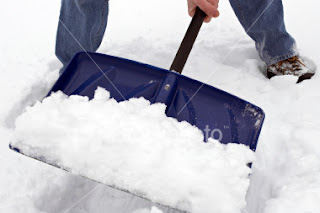
Hard work pays off. That statement came to mind as I read this reading. The author talks about how she worked in the cotton fields when she was a young girl and how that played a factor as to who she is now.
It reminds me of all the discipline I went through when I was younger and still to this day. I remember talking to one of my friends recently in the cafeteria. We were discussing the snow Maryland is getting since we’re both from Maryland. We had different views about the snow. She wished that she was home so she could watch the snow fall from the sky. I, however, was not thrilled about it and was happy to be down here and Georgia. I expressed my dread for snow because I always would have to shovel the snow. No matter how cold or how many feet of snow we received, my parents always had my brother and I out there helping them. My mom even told me that once I could hold a shovel I was immediately put to work.
My friend informed me that her and her mother never shoveled the snow. It would only be her father and younger brother out there battling the storm. I began to become upset by this. I remember going home for Christmas break and shoveling snow with my family. I realized that my neighbors were all out as well except for one family who had a set of teenage twin daughters. The father and younger son would be out there shoveling while the twins and their mother stayed inside. It made me mad picturing them lounging inside sipping hot chocolate and watching us work from the comforts of their couch. So, to myself, I automatically thought that my friend was lazy.
I never thought it was fair that my parents made my brother and I shovel snow all the time and do yard work. When I was younger, I would also get upset because all my friends would get money for their good grades, even if they had two A’s. I, on the other hand, would get straight A’s and get no reward.
When I would tell my parents about my frustrations, saying that I get good grades and get nothing in return, my dad would always say something along the lines of, “I shouldn’t need to give you money to get good grades because you should be getting them anyway.” Or “You’ll get your reward in the future because hard work pays off.” I hated that. I didn’t want to look towards the future. I wanted money right then. That’s all I cared about.
As I got older, I found it to be a hassle asking my parents for money. “You need to get a job” they would tell me. So I did. Then I would end up having two jobs at one time because I loved the satisfaction of making my own money and not having to hear the word “no” from my parents when I wanted something. However, with me having a job, my parents expected me to be able to pay for my gas, phone bill, some of my car insurance and food. At times I would buy groceries for my parents so they wouldn’t have to go out.
This may sound like a hard life, but I actually appreciate my parents for doing this now. It taught me discipline and responsibility. It taught how to look down the road instead of seeing what’s right in front of me. I no longer feel like my school accomplishments aren’t being recognized because I know one day they will once I obtain my dream job. I also don’t complain about shoveling snow because I realized that my parents are getting older. I feel as if they don’t need to be out there risking their health so if they go inside a little earlier to get warmth and rest, I’ll understand.




